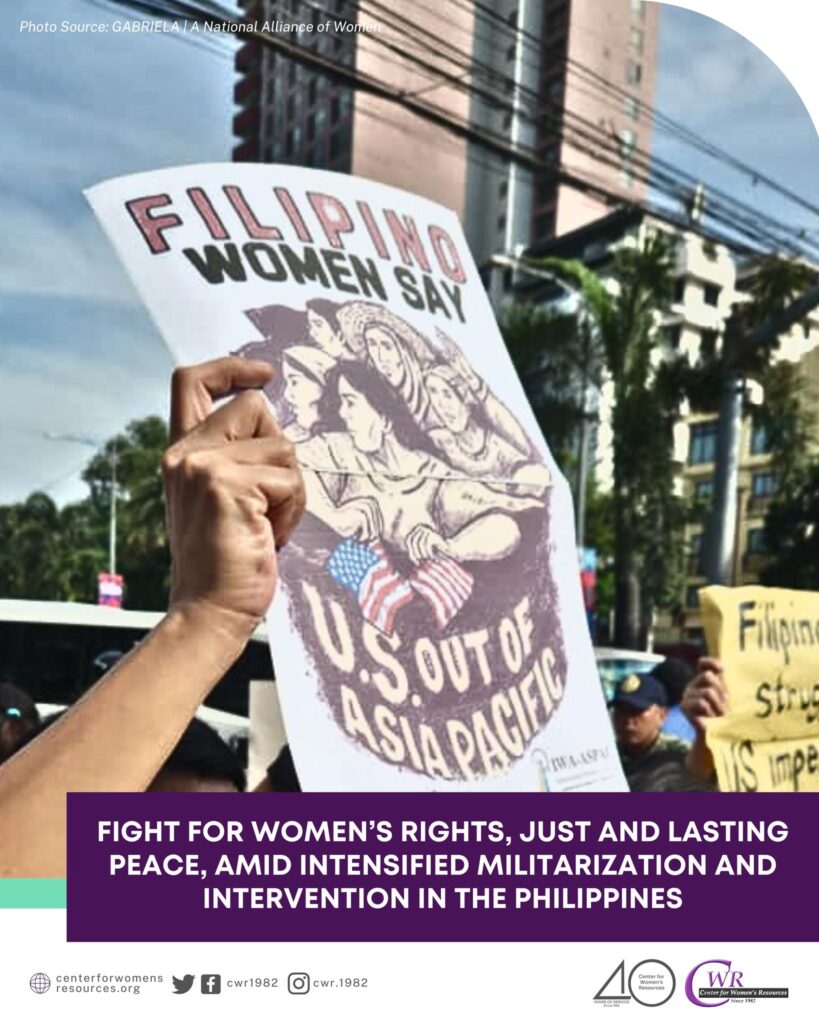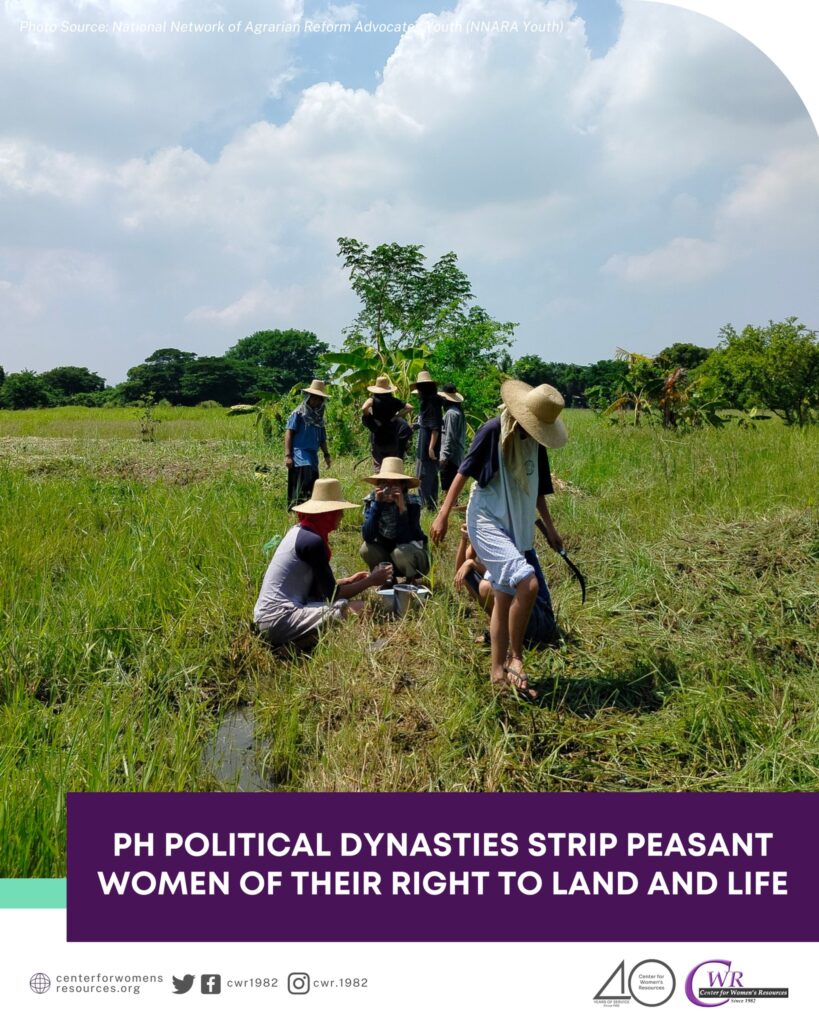
The Center for Women’s Resources (CWR) stands in solidarity with the farmers of Central Luzon, especially women farmers, who embarked on a week-long protest caravan to amplify their calls against the rapid and aggressive land use conversion that threatens their livelihoods, food security, and the right to till the land.
CWR echoes the concerns raised by the Kilusang Magbubukid ng Pilipinas (KMP) regarding the devastating effects of the Marcos administration’s Build Better More (BBM) program, which continues the Duterte administration’s Build Build Build (BBB) infrastructure projects.
Infrastructure projects under the Central Luzon Development Program (CLDP) are causing massive farmland loss that exacerbate the displacement of farmers and endangering local food production.
Central Luzon, the country’s rice granary, contributes nearly 20% of national rice production and has the largest harvested rice area in the Philippines.
However, this crucial agricultural region is now under threat as the government prioritizes urban expansion, commercial hubs, and road networks aimed at accelerating business activities and boosting profit of local and foreign businesses – often at the expense of agricultural sustainability.
According to KMP’s analysis of the latest Census on Agriculture and Fisheries (CAF), farmland in Central Luzon has decreased by 18.44% over the past decade. This decline is driven by land conversion for infrastructure projects such as the Central Luzon Link Expressway (CLLex), the North Luzon East Expressway (NLEE), and New Clark City, among others.
These developments result in reduced agricultural production and displace farmers from their homes and communities. They also aggravate the impacts of climate crises such as flooding and landslides.
The lack of government support services for farmers further drives farming families deeper into poverty. A woman farmer from MAKISAMA in Hacienda Tinang, Tarlac, lamented the absence of subsidies for farm inputs and irrigation, compounded by the low prices of agricultural produce.
“Napakamura ng palay, umaabot lang sa Php 11 hanggang Php 15 per kilo ang palay, pero napakalaking puhunan ang nagagastos ng mga magsasaka. Kung sana ay may suportang serbisyo mula sa gobyerno, makakabawas ito kahit papaano sa gastos ng mga magsasaka.” (The price of palay is very low, ranging only from Php 11 to Php 15 per kilo, but farmers spend a huge amount on production. If only there were support services from the government, it would at least help reduce the farmers’ expenses.)
To sustain their production, many women farmers are forced to borrow from lending institutions with high-interest rates. Instead of relief, they find themselves trapped in a cycle of deepening debt.
“May mga pagkakataon na napipilitang mangutang sa lending na may mataas na interes para lang mabili ang mga pangangailangan para magtanim, tapos kapag anihan halos wala nang matitira dahil ibabayad lang sa pinag-utangan.” (There are times when people are forced to borrow from lenders with high interest rates just to buy the necessities for planting. Then, when it’s time to harvest, almost nothing is left because everything goes to paying off the debt.)
This worsening situation allows landlords and big businesses to exploit farmers’ financial struggles, pressuring them to sell their lands, which are then converted into commercial or non-agricultural properties. This further exacerbates the issue of landlessness and food insecurity.
Additionally, when farmers call for subsidies or demand a halt to infrastructure projects that displace them, they face various forms of repression, including surveillance, direct threats, and intimidation from police, military, and private goons working for landlords and businesses.
CWR strongly supports the demands of farmers in Central Luzon for agricultural subsidies and genuine rural development programs. We support their call to prioritize protecting farmlands and ensuring food security instead of promoting land conversion for commercial and infrastructure projects that undermine the country’s agricultural sector.
We urge everyone to stand with the farmers of Central Luzon in their fight to protect agricultural lands, to secure their right to land and livelihood, and our right to food sovereignty. #



